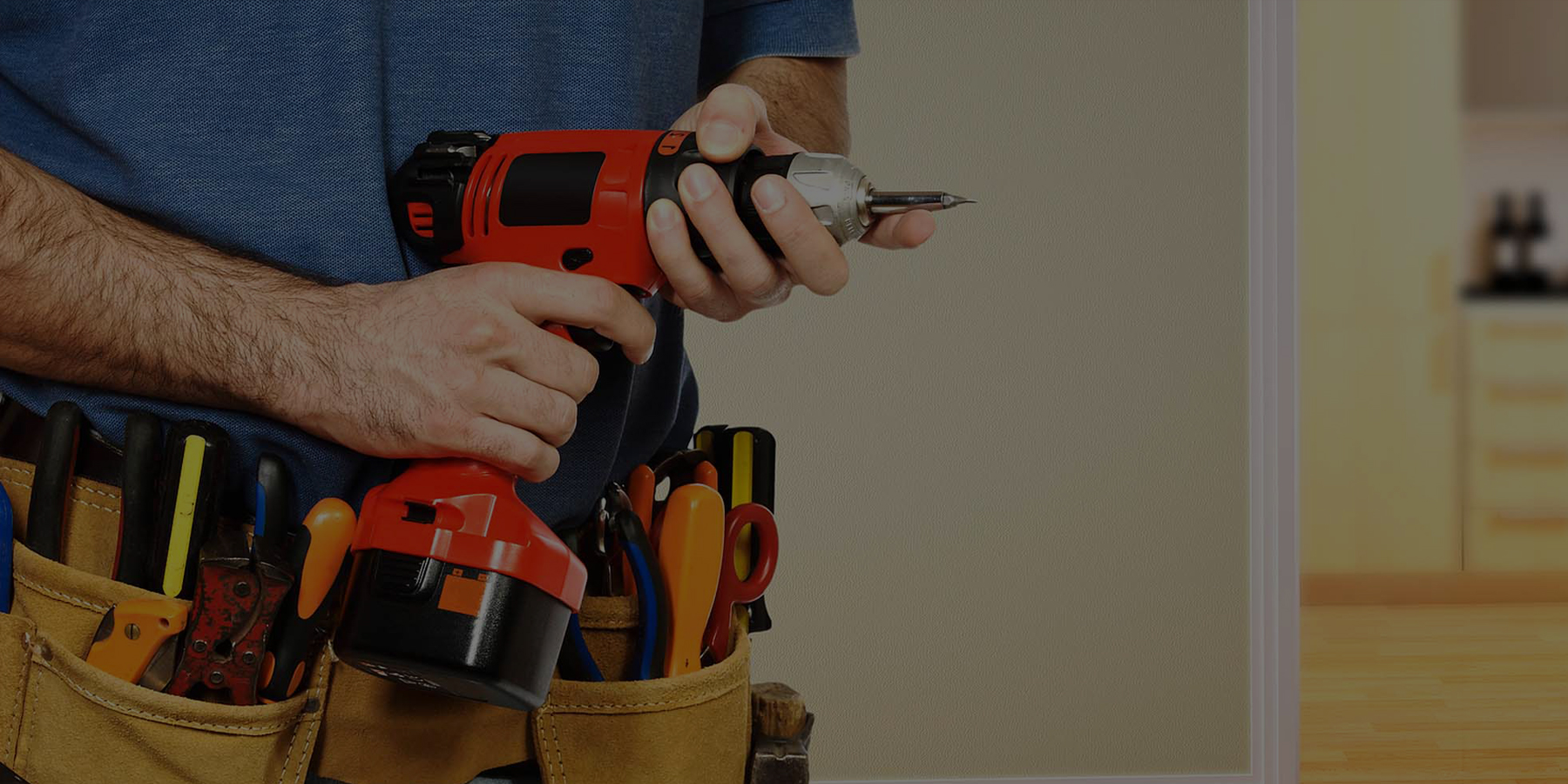Returning from a weekend away, you find your flat awash with water - an unwelcome surprise that raises the crucial question of who will bear responsibility for the damage. Or worse yet, you're a landlord receiving an urgent call about serious
water damage in your rental property. Now comes the crucial question - who pays?
In either scenario, it's stressful enough dealing with the aftermath without having to figure out who's footing the bill for all that damage.
We get it. It’s tough. That’s why we’re going to dive deep into understanding causes and effects of water damage in rentals; what role landlords' insurance plays; how legal negligence affects claims; even scenarios where tenants cause harm themselves!
We'll show you the best ways to manage rental contracts in these difficult circumstances, all while staying composed and level-headed. So stick with us as we dive into these damp dilemmas together.
Table of Contents:
Understanding Water Damage in Rental Properties
Water damage. A landlord's nightmare, right? Let's dissect this beast.
The Impact of Plumbing Issues on Water Leaks
Imagine a pipe - plastic plumbing joints to be precise. It springs a leak.
You might think it’s no big deal but wait until you see the water bill. Suddenly that small drip becomes a huge drain.
Left unchecked, these leaks can lead to serious water damage and even structural issues within rental properties. Not ideal.
Detecting Hidden Water Leaks
Catching leaks early is key. But what about those sneaky hidden ones?
- Silent assassins, they cause damage over time without making their presence known.
- Your best bet against them? Regular inspections of your property for any potential signs of water leakage such as damp spots or peeling paintwork.
Landlord Responsibilities Under the Landlord & Tenant Act 1985
Let me introduce you to our old friend – The Landlord & Tenant Act 1985. This act outlines exactly who needs to roll up their sleeves when things go wrong.
Tenants' Role in Maintaining Rental Properties
While landlords are responsible for most repairs (more on that later), tenants aren't completely off the hook. Under section 11 of the Act, they're required to keep interior fixtures like carpets and decorations in good condition.
That means if you accidentally cause a flood by leaving the tap running, it's on you to fix any damage caused.
Landlords' Liability for Structural Repairs
Now onto landlords. You're responsible for keeping your property in good nick - this includes maintaining the structure of the building and fixing any issues with water supply. The Landlord & Tenant Act 1985 makes that pretty clear.
Navigating Insurance Cover for Water Damage in Rental Properties
Insurance can be a perplexing and daunting prospect, like standing in an inundated cellar - but it needn't be so.
Key Takeaway:
Water damage in rental properties can be a serious headache. Regular inspections help spot hidden leaks, and landlords need to fix any structural or water supply issues. Tenants aren't entirely free from responsibility either - they're on the hook for keeping interior fixtures in good shape under The Landlord & Tenant Act 1985.
Landlord Responsibilities Under the Landlord & Tenant Act 1985
The
Landlord & Tenant Act 1985 has a lot to say about who fixes what.
Key Stat #5: It states that landlords are responsible for structural repairs in their rental properties.
Landlords' Liability for Structural Repairs
No, it's not just you. Leaks can turn any landlord into a reluctant plumber overnight. But before we dive into those waterlogged woes, let's talk structure.
You see, under the Landlord & Tenant Act of 1985, all landlords have certain responsibilities towards their property’s upkeep and repair work (you might want to bookmark this).
This includes maintaining the building’s exterior and ensuring key elements like drains or gutters are in proper working order.
- If there is damage caused by issues with external pipes - yep, that falls on you too.
- Surely not sanitary conveniences including basins? I'm afraid so.
- All right then – but surely not coastal flooding? Actually... yes.
The only exceptions occur when your tenancy agreement says otherwise or if damages were due to tenants acting irresponsibly. And remember folks: 'structure' doesn't just mean walls and roofs. We're talking plumbing fixtures too.
Tenants' Role in Maintaining Rental Properties
Your tenants aren’t entirely off the hook either. The act also sets out specific areas where they’re liable – namely carpets and decorations.
In other words - accidental damage isn’t your headache alone.
- If your tenant causes a water leak by drilling into a pipe, it’s their job to fix the damage.
- They also need to keep everything in working order - including basins and drains. Yes, even if they're not plumbers.
Maintaining this balance of responsibilities plays a key role in making sure that rental agreements run smoothly.
Key Takeaway:
Under the Landlord & Tenant Act 1985, landlords must fix structural repairs including issues with drains, gutters and external pipes. Even damage from coastal flooding is their responsibility unless the tenancy agreement states otherwise or if tenants act irresponsibly. But it's not all on landlords. Tenants have to take care of carpets, decorations and fix any accidental damage they cause like water leaks.
Navigating Insurance Cover for Water Damage in Rental Properties
Dealing with water damage? It's a right old pickle, isn't it?
The landlord insurance cover comes into play here. But hold on. Before making an insurance claim, it's important to consider some factors.
Proving Legal Negligence for Insurance Claims
You're a landlord. You've got an issue: leak damage at your rental property.
Your first step? Make sure the liability cover included in their insurance policy is valid.
To prove liability, it's necessary to demonstrate that the tenant or someone else was responsible for the damage due to careless behaviour or not fulfilling their duties. That means showing that the tenant or another party caused the damage through careless action or failure to act responsibly.
Citizen Advice’s guide on negligence can help with this tricky task.
The Role of Insurance in Addressing Water Meter Issues
Moving onto water meters - these pesky devices often lead to disputes about who pays for what when there's accidental damage due to leaks or bursts from mains supply pipes.
Thames Water’s guide on pipe responsibilities sheds light on how local authorities handle such issues.
Coverage by Landlord's Policy vs Tenant's Contents Insurance:
The devil lies within details of policies held by landlords and tenants.
Landlords' buildings insurance should typically take care of any structural repairs while contents coverage may help replace tenants' personal belongings damaged due to a flood or leak. It's crucial that landlords provide clear contact details for their insurance professional in the tenancy agreement.
Temporary Accommodation and Rent Reduction
A significant water damage can make your property uninhabitable, leaving your tenant needing alternative accommodation.
In such cases, does the landlord’s insurance cover temporary housing? Well, it depends on individual policies.
If not covered by either party's insurance, tenants may ask for a rent reduction or withhold rent payments until repairs are done. But this should be a last resort after discussing with Citizens Advice or legal counsel.
Responsibility of Fixing Damage:
However, this stage can be a bit of a challenge. But generally speaking:
Key Takeaway:
When dealing with water damage in rental properties, the landlord's insurance should kick in. However, proving legal negligence is key to make a claim. Additionally, landlords and tenants need to be clear about who pays for what when it comes to issues like accidental damage from leaks or bursts from mains supply pipes. Also important: understanding policy details that differentiate between structural repairs (landlord's responsibility) and replacing personal belongings (tenant's concern). And remember - if serious damage renders the property uninhabitable, provisions may need to be made for temporary accommodation.
Dealing with Tenant-Caused Water Damage
If you're a landlord, water damage can be a nightmare. Especially when it's caused by tenants.
Tenant Responsibility and Negligence
In most cases, tenants are responsible for any damage they cause. That includes accidental water damage too.
But how do we define negligence? Say your tenant decided to fix their own leaky tap without professional help. The result - an indoor pool in the living room. Now that's what we call negligence.
The Compensation Game
So the question arises: How does one seek compensation?
You'll need proof of the negligent act or unauthorized alteration leading to said disaster. Snap some photos, get statements from neighbours if possible and always document everything.
Court Action – A Last Resort
No one wants legal action but sometimes it’s unavoidable.
Your tenancy agreement should have clear rules about dealing with damages so refer back to this before anything else.
Citizens Advice is also a handy resource if things start getting messy.
The Insurance Route
Now let’s discuss insurance cover for such incidents.
Battling It Out With Insurers
Sometimes insurance companies will argue that landlords should have kept better tabs on property maintenance hence avoiding such situations in the first place.
But don't worry. You can counteract these arguments with evidence of regular inspections as well as quick responses to repair requests.
Tenant Contents Insurance Cover
Contents insurance can be a lifesaver for tenants in these situations. It typically covers accidental damage to personal possessions.
So if your tenant's prized vinyl collection gets waterlogged, their contents cover should take care of it.
Navigating Temporary Accommodation
If the dwelling is severely harmed and inhabitable, what are your tenant's options?
There might be instances where your landlord insurance takes care of the expenses for a temporary place to stay while your property is under repair. It's crucial, however, to always double-check what’s included in your coverage.
Key Takeaway:
When tenants cause water damage, landlords often foot the bill. But with proof of negligence, you can seek compensation. If that fails, court action or insurance claims may be necessary. Tenants' contents cover could help too. And remember - your landlord insurance might even pay for temporary accommodation during repairs.
FAQs in Relation to Water Damage in Rental Property - Who Pays?
Can your landlord make you pay for water damage?
Landlords can ask tenants to cover costs if they caused the water damage through negligence or unauthorised changes.
Who is responsible for a water leak in a rental property?
In general, landlords are obliged to fix structural issues like leaks. However, tenant-caused damages might be their responsibility.
Should tenants pay for damage?
Tenants must pay up when it's clear that their actions led to the damage - say, by neglecting regular maintenance tasks.
What repairs is my landlord responsible for?
Your landlord should sort out structural and exterior problems as well as issues with plumbing installations under UK law.
Conclusion
Water damage in a rental property - who pays? We've walked through the puddles of this issue together, shedding light on causes and consequences.
You now know that landlord responsibilities include dealing with structural issues like faulty plumbing or leaks. But remember, tenants have duties too! They need to maintain their rented homes well.
The role of insurance can't be overstated either. It provides vital cover for both landlords and tenants during water-related disasters.
If you're a tenant facing negligence claims from your landlord or vice versa, always seek professional advice. And don't forget - keep calm under pressure!
Navigating these waters isn’t easy but knowing your rights and responsibilities makes it more manageable.

